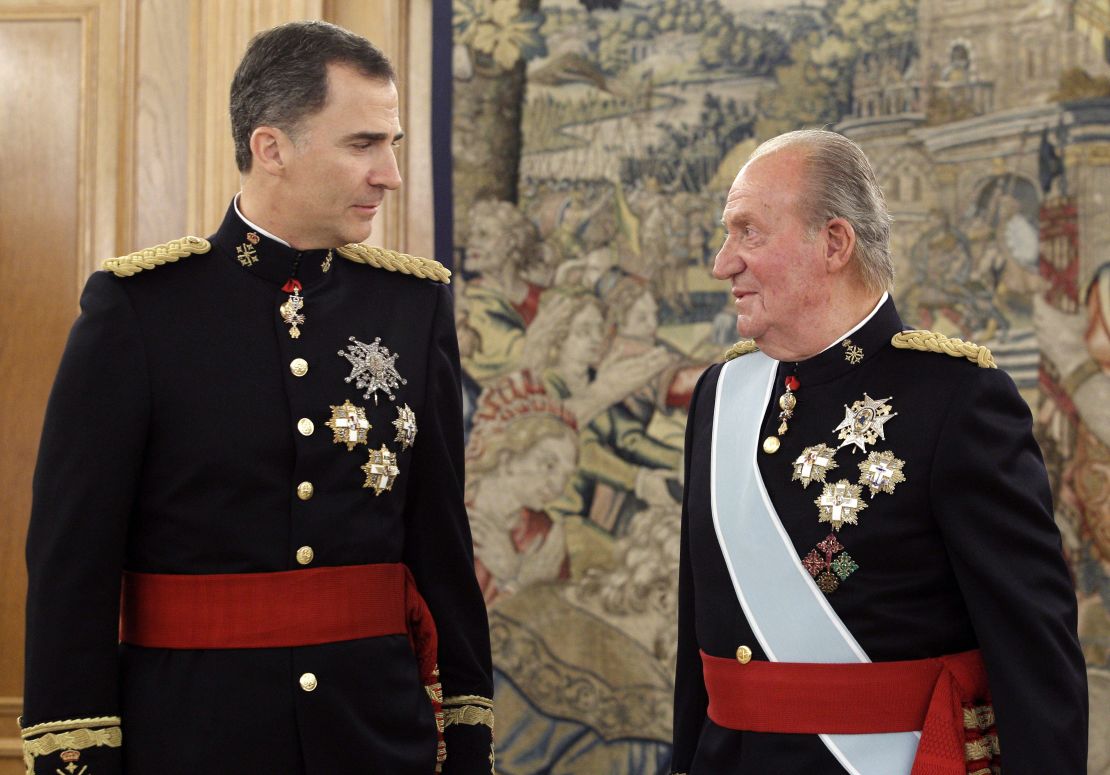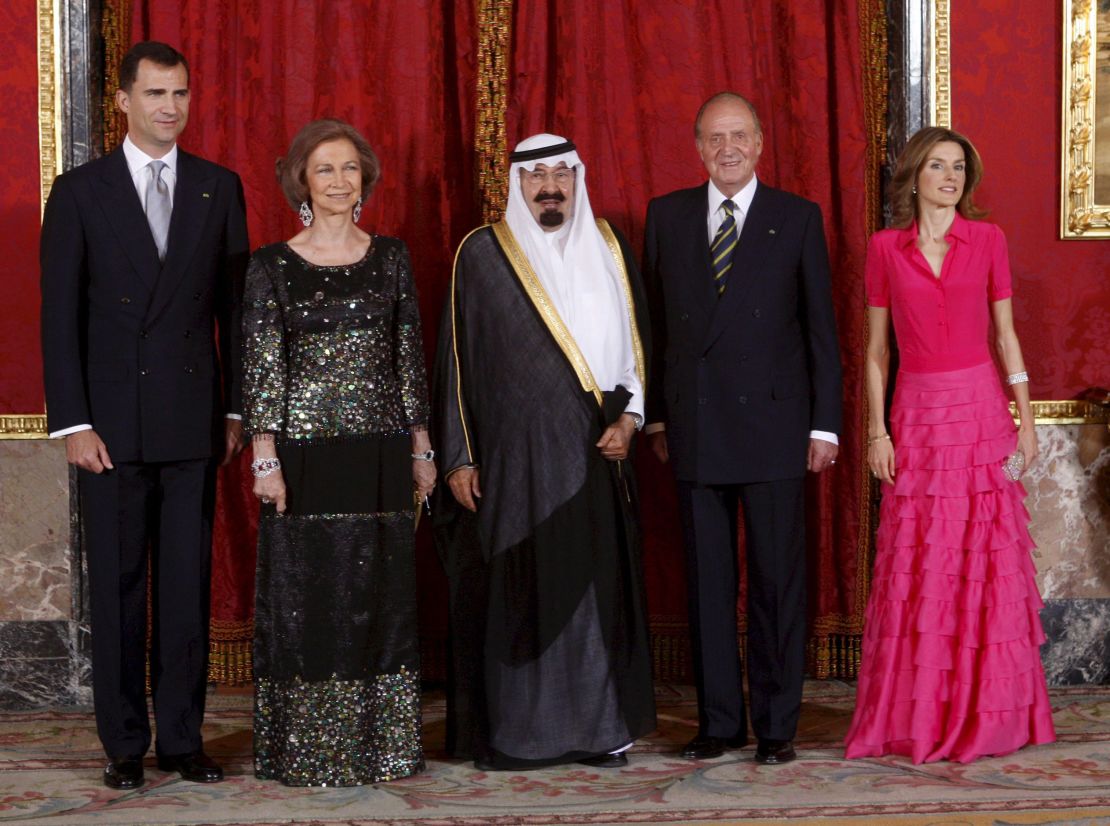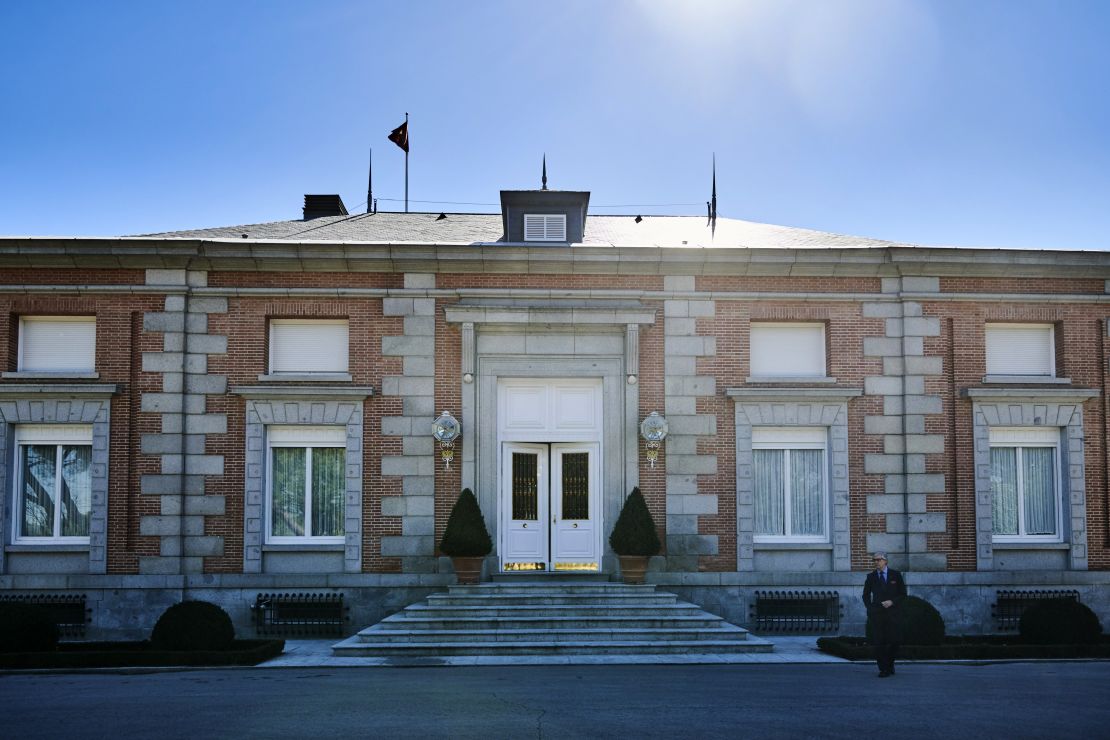Even as Spain battles the coronavirus, Prime Minister Pedro Sanchez says there’s another issue that “all Spaniards are witnessing” – the “unsettling reports” about the murky finances of the royal family.
“It disturbs all of us, and me, too,” Sanchez said on national TV this month.
Spanish media now report almost daily on the alleged financial dealings of former King Juan Carlos I, even before he abdicated in 2014, and on the efforts of his son, King Felipe VI, Spain’s current head of state, to distance himself from his father.
“The judicial system is at work,” Sanchez said. “And the Royal Household is keeping a distance in the face of these disturbing reports.”
In March, just as Spain went into lockdown, King Felipe renounced any personal inheritance from his father and stopped the annual public stipend paid to the former king.
The royal household, in a statement, said its move was prompted by various news reports at the time. These news reports claimed King Felipe might inherit large sums from two offshore foundations allegedly linked to his father.
Analysts told CNN there’s now unprecedented pressure on Spain’s monarchy, which King Felipe vowed to make more transparent when he took over six years ago.

“The monarchy is being questioned. It’s not the former king. That’s the deeper problem,” Javier Perez Royo, an emeritus professor of constitutional law at the University of Seville, told CNN.
Royo said he expects further efforts “to put a firewall between King Felipe VI and his father.”
Juan Carlos abdicated under a cloud of financial scandal and his much-criticized elephant-hunting trip to Botswana during Spain’s financial crisis in 2012.
But his abdication didn’t stop investigations.
Swiss prosecutors are examining documents that allege Juan Carlos may have received $100 million from Saudi Arabia’s king in 2008, a senior Spanish official with knowledge of the proceedings told CNN.
The prosecutors are focusing on people purportedly linked to Juan Carlos who may have acted as proxies for bank accounts, the Spanish official said.
The official said the hypothesis is that the money may have been related to a contract for a Spanish consortium’s construction of a high-speed train between Medina and Mecca in Saudi Arabia.
In 2012, according to allegations in the documents in Switzerland, King Juan Carlos gave €65 million to his then companion, Corinna zu Sayn-Wittgenstein, the Spanish official said.
Zu Sayn-Wittgenstein has testified twice before Swiss prosecutors and “no formal charges have been brought against her,” her lawyer, Robin Rathmell told CNN.
“She’s been the victim of a campaign of harassment headed by the King Emeritus [Juan Carlos] for eight years,” Rathmell said, adding it has hurt her reputation and business. She plans to sue in English courts to stop it, he said.

The attorney general’s office for the canton of Geneva declined to comment on the Swiss investigation, but the Spanish official told CNN that prosecutors at Spain’s Supreme Court had received information from Switzerland.
The attorney general’s office in Spain said in a statement on June 8 that the Supreme Court investigation was indeed focused on the high-speed rail project in Saudi Arabia – and that Juan Carlos’ name had come up in the case.
Prosecutors “will try to define or discard the criminal relevance of events that occurred after June 2014,” when Juan Carlos abdicated, the statement said. Juan Carlos had constitutional immunity from prosecution while king.
The former king’s lawyer, Javier Sanchez-Junco, told CNN, “There are no formal charges against King Juan Carlos in Spanish or in foreign courts at this time.” He declined further comment.
CNN contacted the embassies of Saudi Arabia in London and Madrid regarding the alleged 2008 transfer from the Saudi king to Juan Carlos, but received no immediate reply.
Juan Carlos, who is now 82, is widely credited with helping to guide Spain to democracy after the long dictatorship of Francisco Franco. But in recent years, his image has suffered. Last year, on the fifth anniversary of his abdication, he announced he was stepping down from public life.
Spanish media have reported that King Felipe may be planning to put further distance between himself and his father – by asking him to leave his residence at the Zarzuela Palace grounds west of Madrid.

Reuters quoted an unnamed government source who said the matter of distance must be decided by the royal household, adding that Juan Carlos leaving Zarzuela Palace “may be an option.”
“The King [Felipe], if he has to make another decision, he will,” a palace spokesman told CNN. “The rest is speculation.”
There’s also been talk of a constitutional reform to strip immunity from the king. Yet that’s unlikely, three analysts told CNN, because Spain’s political parties are deeply divided.
King Felipe, 52, appears to be working hard to carve out his own image among Spaniards. He and Queen Letizia are nearly finished with a tour of all 17 of Spain’s regions, to thank people for their efforts during the coronavirus pandemic.






